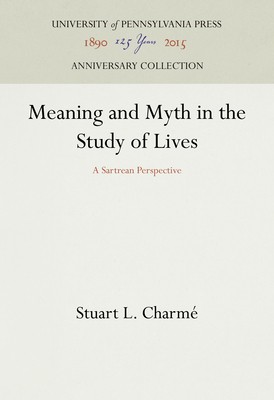
- We will send in 10–14 business days.
- Author: Stuart L Charmé
- Publisher: University of Pennsylvania Press Anniversary Collection
- ISBN-10: 0812279085
- ISBN-13: 9780812279085
- Format: 15.6 x 23.4 x 1.3 cm, hardcover
- Language: English
- SAVE -10% with code: EXTRA
Reviews
Description
This book explores major theoretical issues in the study of an individual life through its focus on Jean-Paul Sartre. Sartre's quest for an existential psychoanalysis led him to develop what he called true novels in the landmark studies of Flaubert and others. In clarifying Sartre's philosophical ideas in relation to the analysis of the self, Stuart L. Charme examines the attraction/repulsion of Freudian concepts and explores parallels to Erikson's ego psychology. Certain mythic qualities in religious biography and autobiography are seen as central to Sartre, who presents lives--including his own--as normative models.
The book concludes by making a provocative link between the modern preoccupation with self-analysis in biography and autobiography and a fundamental religious need that was once fulfilled by primitive myth.EXTRA 10 % discount with code: EXTRA
The promotion ends in 17d.16:15:33
The discount code is valid when purchasing from 10 €. Discounts do not stack.
- Author: Stuart L Charmé
- Publisher: University of Pennsylvania Press Anniversary Collection
- ISBN-10: 0812279085
- ISBN-13: 9780812279085
- Format: 15.6 x 23.4 x 1.3 cm, hardcover
- Language: English English
This book explores major theoretical issues in the study of an individual life through its focus on Jean-Paul Sartre. Sartre's quest for an existential psychoanalysis led him to develop what he called true novels in the landmark studies of Flaubert and others. In clarifying Sartre's philosophical ideas in relation to the analysis of the self, Stuart L. Charme examines the attraction/repulsion of Freudian concepts and explores parallels to Erikson's ego psychology. Certain mythic qualities in religious biography and autobiography are seen as central to Sartre, who presents lives--including his own--as normative models.
The book concludes by making a provocative link between the modern preoccupation with self-analysis in biography and autobiography and a fundamental religious need that was once fulfilled by primitive myth.

Reviews